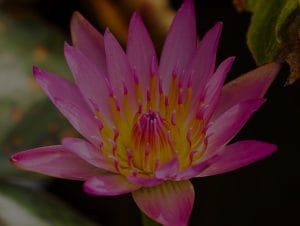**Abstract:** Discover the transformative potential of feng shui ornaments in enhancing health and well-being. These powerful tools not only beautify spaces but also harmonize energy, promoting a balanced lifestyle.
Understanding Feng Shui: The Art of Energy Flow
Feng Shui, an ancient Chinese practice, revolves around the belief that our environment significantly influences our health and happiness. At its core, feng shui emphasizes the flow of chi, or life energy, within a space. By strategically placing feng shui ornaments, individuals can enhance the positive energy in their homes and workplaces. This practice isn’t merely about aesthetics; it’s about creating an environment that fosters well-being and balance. By aligning our surroundings with natural energies, we can cultivate a sense of peace, clarity, and vitality.
The Role of Feng Shui Ornaments in Health and Well-Being
Feng shui ornaments serve as tangible manifestations of energy, designed to attract positive influences and dispel negativity. Items such as crystals, wind chimes, and bamboo plants are not just decorative; they play crucial roles in promoting physical and mental health. For instance, crystals like amethyst and citrine are believed to enhance emotional stability and foster healing. When placed thoughtfully, these ornaments can create a sanctuary that nurtures both body and mind. By integrating feng shui ornaments into daily life, individuals often report improved mood, reduced stress, and enhanced overall well-being.
Selecting the Right Feng Shui Ornaments
Choosing the right feng shui ornaments is essential for maximizing their benefits. Each ornament carries unique properties and symbolism. For example, the dragon symbolizes strength and protection, while the phoenix represents renewal and transformation. Understanding these meanings allows individuals to select ornaments that resonate with their personal goals and aspirations. Furthermore, the placement of these items is equally important. For optimal results, feng shui practitioners recommend positioning ornaments in specific areas of the home or office, aligning them with the Bagua map, which outlines energy zones.
Creating a Harmonious Environment with Feng Shui
A harmonious environment is crucial for overall well-being. Feng shui ornaments can help achieve this by balancing the five elements: wood, fire, earth, metal, and water. Incorporating these elements through various ornaments creates a dynamic space that supports health and vitality. For example, introducing water features like fountains can stimulate prosperity and relaxation, while plants enhance the wood element, promoting growth and healing. By thoughtfully curating a collection of feng shui ornaments, individuals can create a sanctuary that encourages positive energy flow and fosters a sense of well-being.
Real-Life Transformations: Success Stories
Numerous individuals have experienced profound transformations through the incorporation of feng shui ornaments into their lives. For instance, a study revealed that employees in an office adorned with feng shui elements reported a 30% increase in productivity and job satisfaction. Similarly, homeowners who embraced feng shui principles experienced reduced anxiety levels and improved relationships. These success stories underscore the tangible benefits of integrating feng shui ornaments into daily routines, illustrating how energy can be harnessed to improve quality of life.
Conclusion: Embrace the Power of Feng Shui Ornaments
Incorporating feng shui ornaments into your life can be a powerful step toward enhancing health and well-being. By understanding the principles of feng shui and selecting ornaments that resonate with your personal energy, you can create a harmonious environment that supports your physical and emotional health. Whether you seek to reduce stress, improve relationships, or boost productivity, feng shui ornaments offer a practical and effective solution. Embrace the transformative power of these beautiful tools and unlock the potential for a balanced and fulfilling life.










